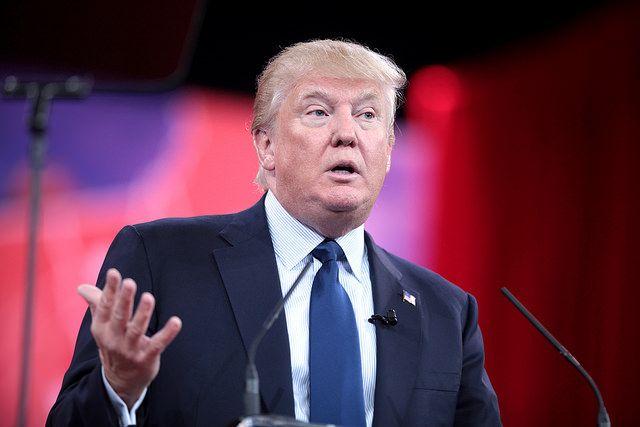
This is a presidential race of many firsts, and not all of them are good. During Monday night’s debate between Donald Trump and Hillary Clinton, viewers tracking the candidates’ banter on social media noticed a company taking on the role of Politifact or FactCheck.org: Ford Motor Co. found itself defending its business practices while Trump lambasted the automaker for what he called the outsourcing of jobs to Mexico.
This was not the first time a company found itself caught in the middle of presidential campaign politics. Four years ago, the small appliance maker KitchenAid landed in the middle of a firestorm after a tweet sent from the company’s account during a presidential debate linked the Affordable Care Act (Obamacare) to the death of President Obama’s grandmother in 2008. And last week, Mars Inc. was largely applauded for its response after the Republican candidate’s son, Donald J. Trump, Jr., compared Syrian refugees to poisoned Skittles.
No company wants to be caught defending itself to the public thanks to the words of a presidential candidate. Push back too hard, and it alienates some customers. If the company sends a message that comes across as marketing or capitalizing in another way, other customers could become offended. But considering the fact that Politifact estimated only 4 percent of Trump’s statements are verified as true on average, while over half are false or “Pants on Fire,” Ford’s social media team saw few risks in stepping into Monday night’s fracas.
Trump’s piling on Ford is based largely on the company’s decision to manufacture more of its small cars in Mexico, including within a new $1.6 billion factory that has drawn plenty of Trump’s invective in recent weeks. The Donald has also long accused Ford of plotting to “fire all their employees in the United States” and move those jobs to Mexico.
The truth is far more nuanced. Ford argues it cannot make smaller automobiles at any profit unless they are manufactured in markets where the cost of labor is lower. But the Michigan-based automaker also said it invested $12 billion across its U.S. factories since 2011, and claims to have created 28,000 new American jobs over the past five years. Those statistics were posted during Monday’s debate by Ford, and were backed up by the United Auto Workers (UAW). The company also insists its cars, SUVs and trucks will continue to be made in the U.S. for the indeterminable future.
Monday night’s flap is another chapter in Trump’s struggles to reconcile both the facts, and his knowledge of the industry, with his statements about U.S. auto manufacturing. Last year, Trump claimed his rhetoric prevented Ford from building new plants in Mexico, only to be followed by news the company was moving forward on its plans south of the border. That policy was in contradiction to the company’s plans under former CEO Alan Mulally, who committed Ford to building smaller cars at its U.S. plants. But as profiled in the Wall Street Journal, Mulally's plans fell apart due to two-plus years of cheap gasoline, which nudged consumers to buy larger cars. Nevertheless, Ford continues to sign collective bargaining agreements with the UAW, despite some analysts’ complaints that those contracts will increase its U.S. labor costs in the long term.
Indeed, Mexico has surpassed Japan as the largest exporter of cars into the U.S. At the same time, American automakers have become a force in the nation’s economy once again. This recovery is in part due to the U.S. auto bailout started under George W. Bush, which Trump first supported, then the past year attacked, and now apparently supports again, as long as auto production moves to states outside of Michigan.
The bottom line is that the new Ford plant in Mexico will not have an impact on U.S. jobs. And contrary to Trump’s statements, this is not a recent announcement, as investors and industry analysts have known about this plant since last year.
Trump’s bad night, punctuated by sniffles and constant interruptions, will long be remembered for his defense of body shaming and his bizarre 400-pound hacker comment. But it also shows his refusal to understand and even articulate the issues, leading one company to set the record straight.
Image credit: Gage Skidmore/Flickr

Leon Kaye has written for 3p since 2010 and become executive editor in 2018. His previous work includes writing for the Guardian as well as other online and print publications. In addition, he's worked in sales executive roles within technology and financial research companies, as well as for a public relations firm, for which he consulted with one of the globe’s leading sustainability initiatives. Currently living in Central California, he’s traveled to 70-plus countries and has lived and worked in South Korea, the United Arab Emirates and Uruguay.
Leon’s an alum of Fresno State, the University of Maryland, Baltimore County and the University of Southern California's Marshall Business School. He enjoys traveling abroad as well as exploring California’s Central Coast and the Sierra Nevadas.














